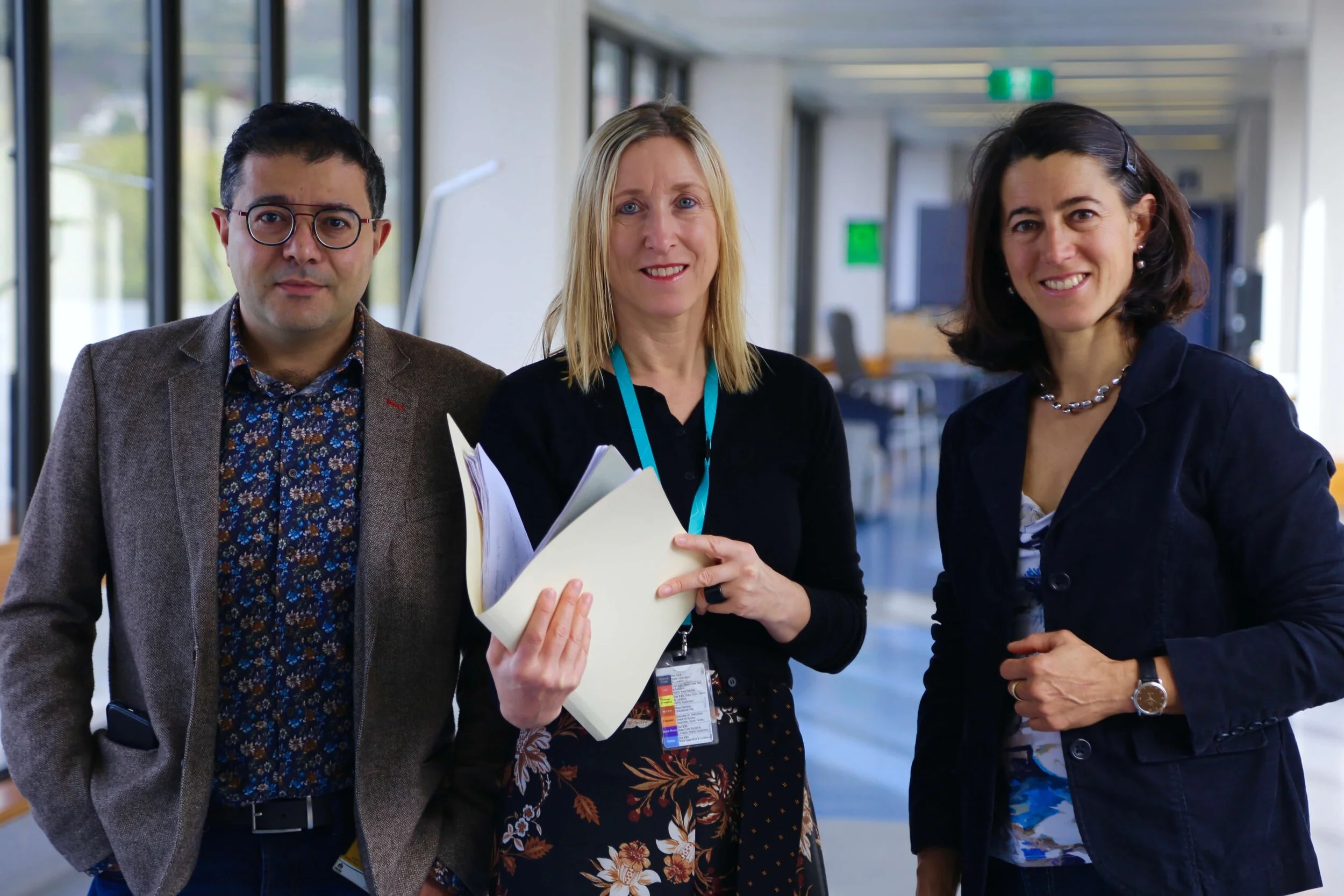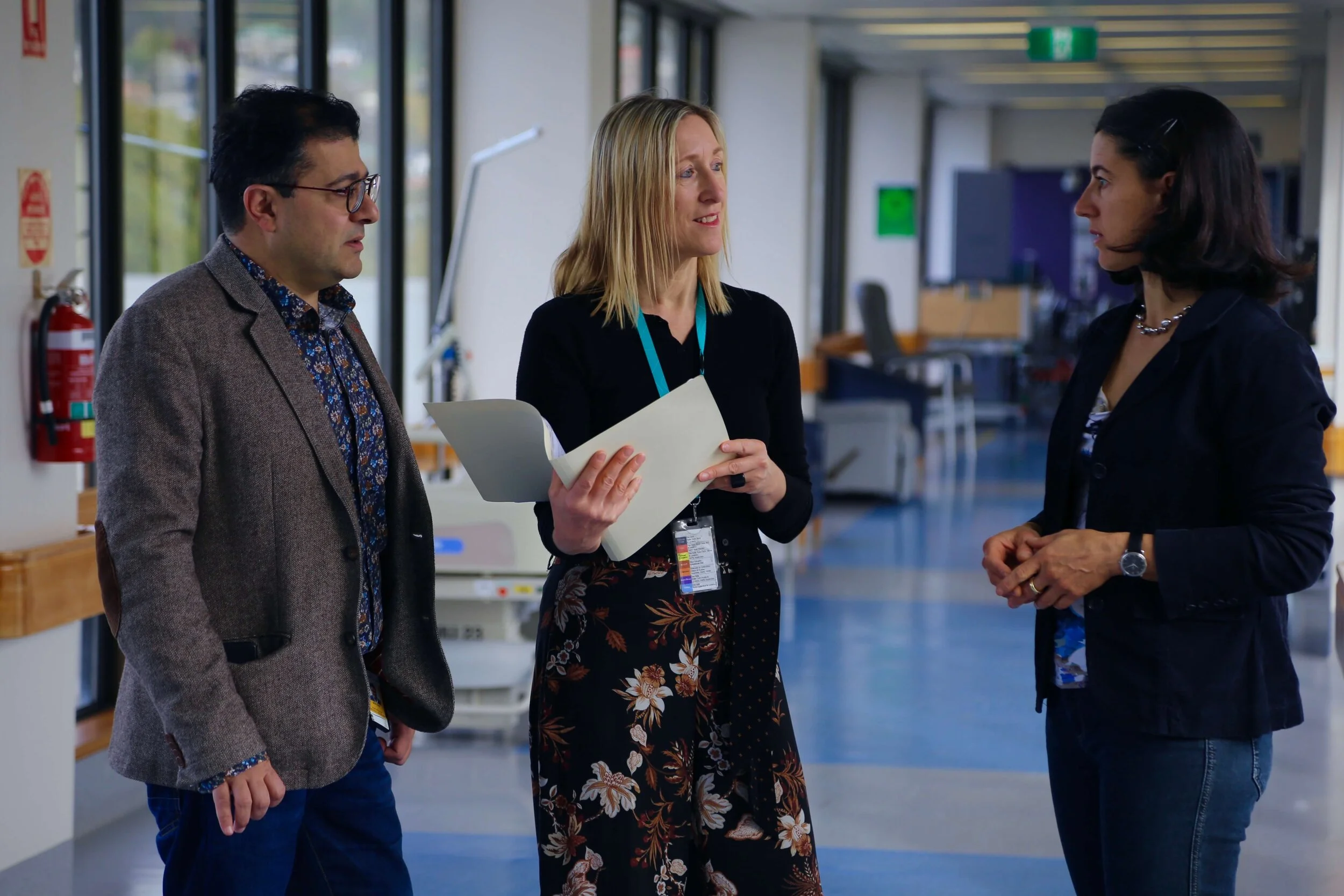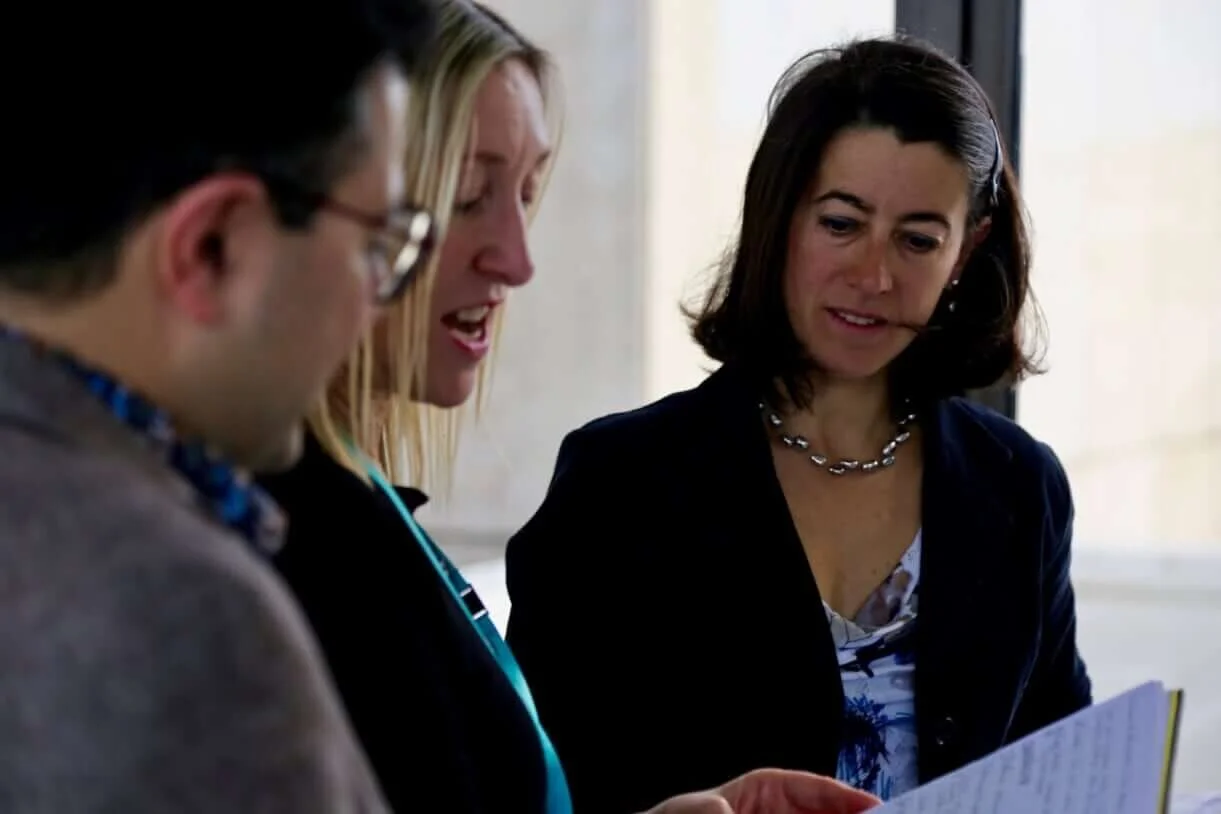LGH joins Australasian research trial
Article from The Examiner, by Jessica Willard, Sunday 17th May, 2020
LGH ASCOT researchers Dr Ali Trad, Professor Katie Flanagan and Dr Sabrina Sonda.
THERE is a renewed optimism in the fight against COVID-19, with a team of researchers at Launceston General Hospital joining an international trial.
The Australasian COVID-19 Trial or ASCOT will test the effectiveness of HIV medication lopinavir-ritonavir, and malaria drug hydroxychloroquine, in treating patients hospitalised with coronavirus.
Led by Infectious Disease Specialist Professor Katie Flanagan, the large multicentre trial will recruit patients in more than 70 hospitals across Australia and also involves 11 hospitals in New Zealand. With no proven treatments with established effectiveness against COVID-19, Professor Flanagan said lopinavir- ritonavir and hydroxychloroquine had shown great promise as potential treatments.
“At the moment we don’t have a single proven treatment to work against COVID-19. We need to conduct randomised control trials, so that we can determine if any of these drugs actually work” she said. “We know COVID-19 is killing a lot of people throughout the world and people are suffering significant morbidity from it. I think it’s extremely important that we are participating in high quality trials like this in order to find effective treatments.”
ASCOT is a randomised trial, meaning patients will be randomly allocated to different treatments, while some will not receive either drug. It is also a responsive and adaptive trial, meaning if one drug proves to be ineffective, the trial can be adapted to drop that treatment and introduce other candidate drugs.
Coordinated through the Royal Melbourne Hospital and the Peter Doherty Institute, Professor Flanagan will work alongside a team of researchers including infectious diseases specialist Dr Ali Trad and postdoctoral scientist Dr Sabrina Sonda. Professor Flanagan said thousands of patients would need to be included in order to determine whether the drugs were effective.
“The idea is to recruit the patients before they become severely unwell. If they are already progressing to the point of going on a ventilator, they wouldn’t be included in the trial.” she said. “We are looking for people who come in, are sick enough to be in hospital, but are not about to end up on a ventilator. Then we would randomise them to one of the arms of the study and hope that one of the treatment options prevents them from deteriorating.”
The Clifford Craig Foundation has contributed more than $70,000 in research funding for ASCOT. Chief Executive Peter Milne said it was incredible to see the LGH take part in the project.
“This would have to be the most significant research project we’ve ever been involved in, because of its potential impact worldwide” he said. “Importantly, it should be remembered that the funding for this project and the many other research projects undertaken through the foundation are due to the philanthropic support of our community.”
While admitting the past few months had been challenging, Professor Flanagan said Australia had done an extraordinary job.
“It’s been a very stressful few months. Not knowing what was coming and seeing what was unfolding all over the world has been quite alarming” she said. “If you look at the infection rates we have in this country compared to the rest of the world, the public health and government response in closing borders and doing all the testing and contact tracing, has paid huge dividends.
“I would say I am optimistic, but it’s going to be a difficult journey these next few years dealing with intermittent COVID-19 cases.”



